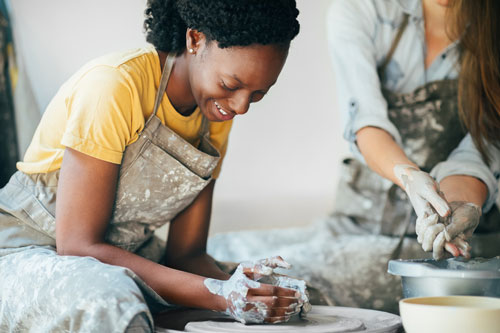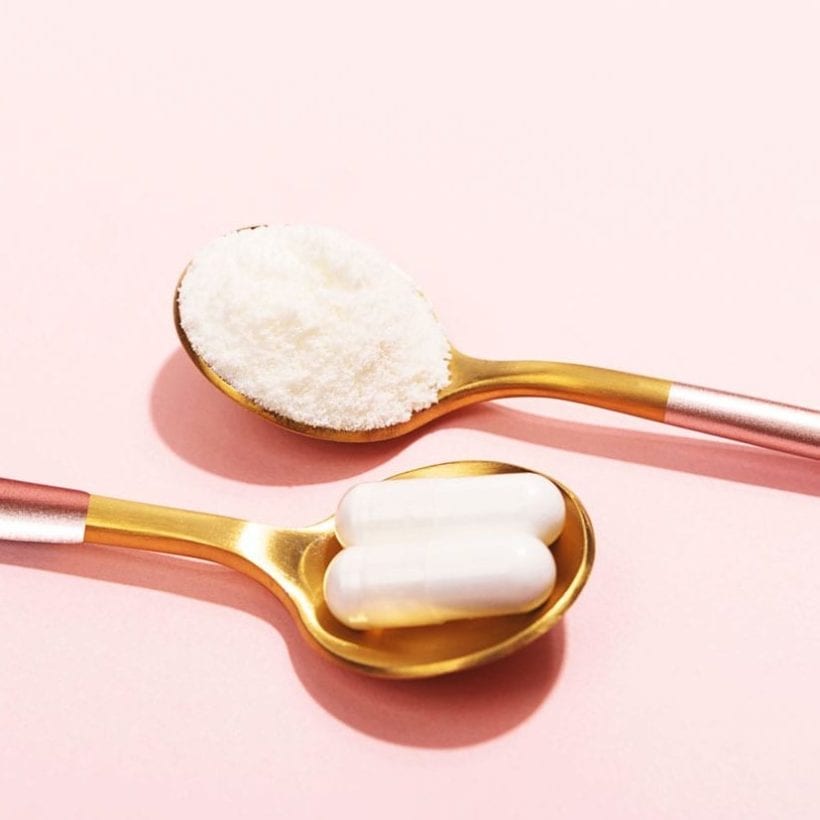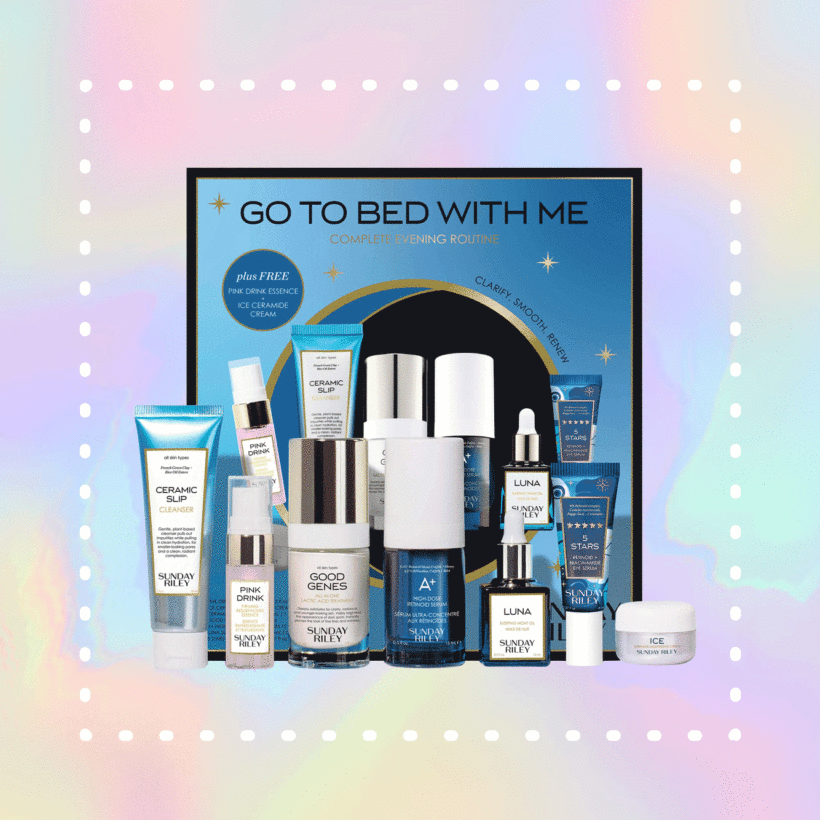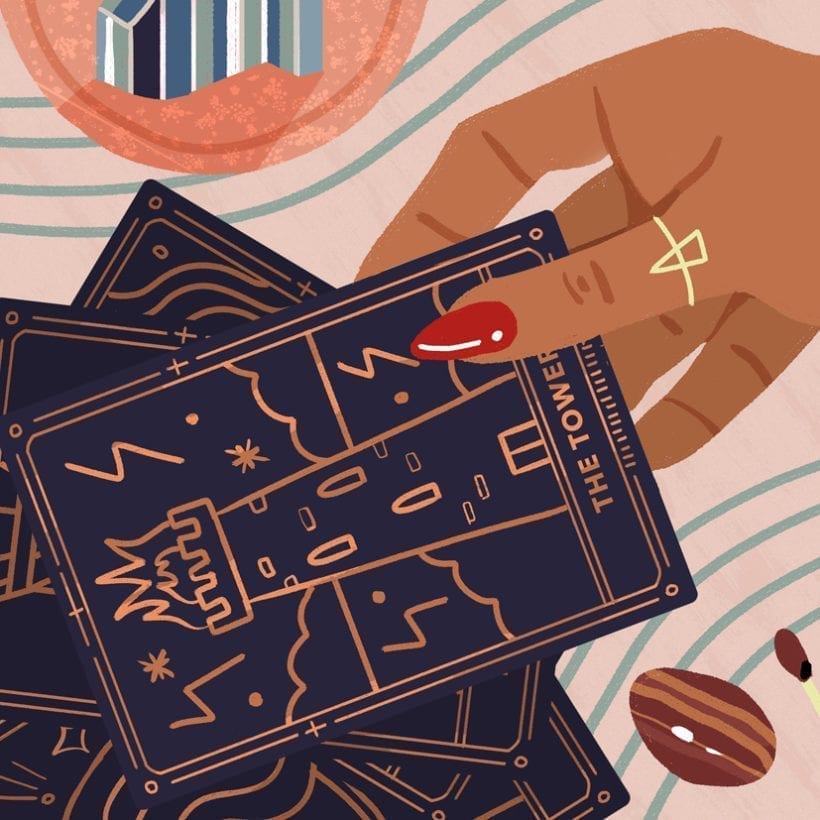Self-care has been trending for quite some time now. And while we are all for a good Sunday self-care session, a new form of self-care has entered the chat. Meet: treat culture (or “treating”). Treat culture is the simple act of rewarding yourself with a special treat or simple pleasure — and it is making its stamp on society. Creativity expert Nina Meehan explains that self-care often has the connotation of performing an act in a certain way that requires planning, preparation, and actionable steps. “In contrast, the treat aspect is just fun, easy, and enjoyable,” she says.
Treating ourselves with small, simple pleasures registers positively with the brain’s pleasure center. However, if we do not satisfy that pleasure point from time to time, it is easy to pursue damaging or hedonistic behaviors that are destructive to our health and well-being, says Dr. Patrick Porter, a neuroscience expert and founder of BrainTap. So before you run out and treat yourself to a little delight, we are getting into the details of the movement and the right way to practice it.
What Is Treat Culture?
The exact origin of treat culture is hard to pinpoint. However, Dana Humphrey, a life coach and author of May All Beings Be Fed, credits treat culture to the Frappuccino. “The drink created the perfect excuse to take a ‘coffee break’ and indulge in an ice cream-like equivalent. There’s nothing like some sugar, dairy, and caffeine in one tasty drink to make you feel good,” she says.
Other experts, including Meehan, associate treat culture with the popular “treat yourself” phrase. “I remember watching Parks and Recreation and learning about ‘Treat Yo Self,’ which was such a wonderful and delightful concept that stuck in my head immediately,” she says.
Today, our lives and the world we live in are full of constant pressures and stresses, and we need to make time for ourselves with simple pleasures that create instant happiness. “Many of us have a work culture of eating at our desks and being so focused on productivity that we forget to stop and enjoy. It’s important to pause, enjoy, and live your life,” Humphrey says. Whereas self-care requires more planning and thoughtfulness, treating is like a quick hit of euphoric pleasure.
Meet the Experts
Nina Meehan is a creativity expert.
Dr. Patrick Porter is a neuroscience expert and founder of BrainTap.
Dana Humphrey is a life coach and author of "May All Beings Be Fed."
Dawn Fable is the founder of Press Pause.
Carol Gancia is the founder and Head Chocolatier of Kokak Chocolates.
Humphrey says building healthy habits and scheduling pleasure is essential, especially if you are hyper-scheduled. “Simple pleasures usually involve pausing and slowing down, whether taking five minutes to pet your dog or cat or go for a quick fresh air break outside. These little moments allow us to reset and recharge,” she explains.
Taking a break from your daily routine to relish life’s simple pleasures isn’t a form of procrastination, selfishness, or laziness, but rather a moment to step away from the mundane and appreciate the reward. Humphrey says that is especially true for those who run themselves ragged and consume themselves with the concept or idea of busyness. However, there is a fine line between a simple reward and entitlement. “I notice a culture of ‘deservedness’ forming with millennials and younger generations. There’s this prevalent idea that you should treat yourself to whatever you want, be it avocado toast or a fancy beverage to feel good, even if you don’t have the savings to support these habits,” Humphrey adds.
So, is treating yourself to something that makes you feel good self-indulgent? And how do we know how much is too much? Meehan says self-indulgence is about excess — too much self-focus without considering the “why” of rewards: “A small reward recalibrates our minds to focus on moments of joy and presence, where self-indulgence is about constantly focusing on only pleasing ourselves,” says Meehan. “Small rewards help us on that path by giving us the space and bandwidth to enjoy the good, so we are prepared to work through the challenges.”
It’s the Little Things that Matter

Allowing yourself to enjoy an indulgence, no matter how small or large it may be, provides the brain with small moments of happiness that stimulate overall happiness and fulfillment. “If treating yourself to a small reward brings you happiness, do it repeatedly, day in and day out,” says Dawn Fable, founder of Press Pause, a beauty brand that helps women improve their everyday lives by allowing themselves to “press pause.”
The reasons to carve out a few minutes in your day for yourself nurtures the soul, reinforces self-love, and can serve as an easy way to reconnect with yourself.
We all need to find and define moments of gratitude or happiness and relish in them for a moment or two. And there’s actually some science behind the why. “When we taste something we enjoy, for example, it sends a response to our hypothalamus that we’re in a state of pleasure and satisfaction. That feeling resonates through our body with a chemical cascade of corresponding positive neurotransmitters, which give us a feeling of joy and acceptance,” Dr. Porter explains.
Enjoying your treat of choice at some point throughout the day may not be viewed as a necessity by some, but it should be. The reasons to carve out a few minutes in your day for yourself nurtures the soul, reinforces self-love, and can serve as an easy way to reconnect with yourself. “It’s important to get outside of ourselves from time to time to destress and disengage the stress response from our day-to-day activities,” Dr. Porter says. But that’s not the only reason to give yourself a little treat when you need it.
He also says that rewarding yourself gives you time to focus on your thoughts and course correct. “We have more than 60,000 thoughts per day and on average 80 percent of them are negative, so this ‘break’ gives us a chance to walk out, relax, maybe put ourselves in a state of gratitude, and start to think about a more positive lifestyle or more positive thoughts than the chaos of everyday life,” he adds. And finally, Dr. Porter says that we have a natural propensity to seek time alone to go inside ourselves and find out what really makes us tick. “This daydreaming facilitates a creative process that allows us to think outside of the day-to-day grind and work from a higher perspective to visualize our future in a new way or reframe our past experiences so that we can learn from them.”
“The only reason I want to enjoy a treat is to bring joy to my day,” says Carol Gancia, founder and Head Chocolatier of Kokak Chocolates. “I don’t need a treat, but it is a way to give myself praise. And that’s what makes it an extraordinary experience of self-love. Carving out time to find and indulge in a treat is a way of giving yourself a nice big hug,” she adds.
The Connection to Well-Being
Humans are emotional beings, and everything we experience has a physical and emotional response. “Unfortunately, we spend a lot of time shoving down those emotions because they feel overwhelming, so practicing feeling happy and joyful is important,” Meehan says. “From a scientific perspective, small treats release endorphins, which minimizes our stress response. The pleasurable activity releases dopamine, which creates a sense of happiness and encourages us to repeat the behavior. Bottom line: Treats reduce stress, make us feel good, and set us up to want to do that activity again.”
“We have the power, as humans, to interpret the world any way we choose. We can see beauty and generosity or rigidity and difficulty at any moment.
When we go and go and don’t stop to take time for ourselves, we lose that personal connection to ourselves and even others. So, the idea of presenting a little something special to yourself creates a sense of excitement and a feel-good moment. We look forward to that special treat because you know there’s a reason for it. So essentially, you’re giving yourself a little respite for reaching a goal of some sort that also creates meaningfulness to you, whatever those both may be.
“We have the power, as humans, to interpret the world any way we choose. We can see beauty and generosity or rigidity and difficulty at any moment. So, simple pleasures are a terrific way to tap into a small moment of focus on something lovely,” Meehan says. “For a short period, we can focus on one thing that makes us feel good, and our brain can quiet and enjoy it. Those small moments add up to help our cortisol levels dip, which gives us the strength to tackle the challenges for the rest of our day,” she adds.
Treating and rewarding yourself for something that’s a regular habit (think: Going for a walk to clear your head or meeting a friend for coffee) may require a bit of brain retraining, and that’s okay. However, when you take the need out of it and view it as a reward, basic everyday tasks become more meaningful and purposeful. “Yet, these small acts of kindness gifted to ourselves often do wonders for our mental state — perhaps even giving us just a brief moment of PAUSE to relish at the moment to feel more present in experiencing joy or happiness,” Fable says. “To take away those moments would be the demise of our society and would have significant impacts on our now, very real pandemic of mental health.”
Yet, surprisingly, suppressing the self-reward notion can be detrimental to our mental well-being. “If we don’t seek out simple pleasures, stress builds up and creates an overload of negative neurotransmitters and stress hormones, like cortisol and adrenaline, increase,” Dr. Porter says. “These hormones are destructive to the body and put us into a state of fight or flight, which causes us to become inactive and can drive people to seek out more destructive pleasures to the body than the simple pleasures that can bring us day-to-day satisfaction.”
What Counts as a Treat?

Anything and everything is a treat as long as the item or act makes you feel good. “Whether it’s an expensive scented candle or a $7 kombucha, everyone has what they consider an indulgence or treat,” Fable says. “Big or small, treating yourself is good for the soul. Doing even the simplest things to make ourselves happy is a great way to boost our self-esteem or mood. It’s the little pleasures that get us through the everyday grind.”
For the most part, the more trivial the delight, the more it feels like a feel-good moment. Gancia calls small comforts, like enjoying a piece of chocolate, a ritual that quickly puts a smile on someone’s face: “Food is a memory, and chocolate is definitely a happy one.”
We asked the experts to share their favorite forms of treating, and here is what they consider popular yet easy and meaningful treats.
- A matcha latte from your favorite coffee spot
- Spraying your signature scent every morning
- A daily walk for some much-needed “me time”
- A social media scroll
- A piece of indulgent chocolate. (Gancia says 50% of her customers buy treats for themselves.)
- Doodling with fun-colored markers between Zoom meetings
- Baking a beautiful cake
- Making a necklace out of beads you choose from a craft store
- Quietly reading poetry outside in the sun while sipping iced tea
- Enjoying a few minutes of complete silence
- Watching a sunrise or sunset
- Walking barefoot to ground your body
- Meditate
“If treating yourself to a small reward brings you happiness, do it repeatedly, day in and day out,” Fable says. “We live in turbulent times, and anything that can bring a smile to someone’s face only breeds an element of being contagious that our world could benefit from.”
We only recommend products we have independently researched, tested, and loved. If you purchase a product found through our links, Sunday Edit may earn an affiliate commission.







